…and then back on again?

Does that work for blogs?

IS THIS THING ON?

Let’s see, shall we!

Check back next week to see if it worked…
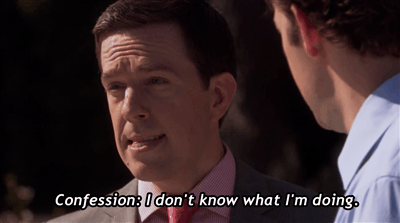
p.s… I wonder if I could create an entire story just by using gifs.

…you might want to avert your eyes.
…and then back on again?

Does that work for blogs?

IS THIS THING ON?

Let’s see, shall we!

Check back next week to see if it worked…

p.s… I wonder if I could create an entire story just by using gifs.

In keeping with my The Magnificent Seven theme from yesterday, I have a quote from one of the (uncredited) writers, Walter Bernstein, that stuck out to me. He has quite the interesting history. He was a war reporter during WWII who eventually found his way out to Hollywood and worked for Columbia Pictures before he was blacklisted in the ’50s.
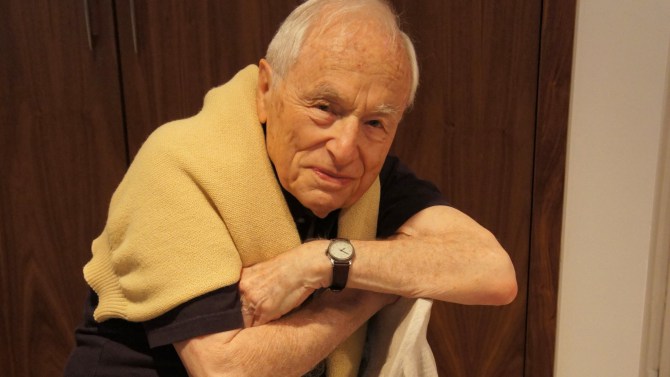
This quote comes from an interview he did with The Brooklyn Rail when asked what kinds of issues his students engage in while teaching writing at NYU’s Tisch School of the Arts:
“What disturbs and distresses me is that the subject matter is so bad. They don’t want to write about anything personal… They don’t want to engage. It’s not that they should be writing political screenplays, but the subject matter should have some kind of relation to the world as it is.”
I’ll take that as… write from the heart. Write your story in a way no other person could.
Happy writing!
MONDAYS! Amirite?
Let’s start the week off with some inspiration. This week’s theme (and likely every week ’til the end of time as far as I’m concerned) is TO NOT PROCRASTINATE!

Now get those fingers tapping, pens and pencils scribbling, or notecards pinned because you’ve got shit to do!
You know how every once in a while you come across a new song or TV show that hits you just right and you have to run out and shout about it from the rooftops for everyone to hear? Well, this was me when I came across Alex Kyrou‘s little kickstarter-that-could for his short film White Awake. I was instantly grabbed by his admission of being attracted to stories and films that touch on emotional authenticity and what goes on behind the mask so I had to reach out and learn more about Alex and his project.
While his Kickstarter has reached its goal (and then some), I want to help get one final push in its last hours to truly make it something special – I can feel its potential! Plus, I gotta pimp a fellow Greek. ELLA!
“White Awake is a short film about innocence, loss, and the social masks we wear. It is a touching visceral story about connection and the depths and obstacles of confronting emotion.
Joshua is a successful accountant who seemingly has everything. Intelligent, refined. But he isn’t whole. During a therapy session, he recounts several stories about his hoarder friend Robert who lives with his wife and adopted son. The boy, like his father, has grown up with a love of collecting things; for the father it is a love of collecting pennies and for the boy it is a love of collecting shells.
While shell-hunting on the beach, the boy unexpectedly discovers the fossilised remains of a seahorse, something Joshua doesn’t reveal to his therapist. And he is finally confronted with a question regarding his story: “does it mean something to you?”
https://www.kickstarter.com/projects/357768448/white-awake-a-16mm-short-film
Despina: First of all, I have a thing for titles so I have to know about the story behind White Awake. Where did it come from?
Alex: Initially I came up with the title of White Awake because I liked the play on words. The first draft of the script I wrote a long time ago was about an insomniac and “White Awake” was really fitting. However, the script for the short has changed completely, and now the title links to the name of the lead character Joshua White and him ‘awakening’ to his past. (Love it!)
D: In your video you mention an interest in emotional honesty and how people respond to any given situation. As the writer, what was the inspiration for that within this story? Anything in particular that prompted it or the characters?
A: The inspiration stemmed from my observations of how people tend to live without emotional honesty. I’m a person who tends to wear his heart on his sleeve, and am perhaps overly sensitive to other peoples’ problems. I find it interesting when people live in a closed-off way, not really facing up to the issue at hand, and that makes for interesting fictional characters and good storytelling that relies so much on subtext. The family history of the lead character, Joshua White, is really an amalgamation of some of my own personal experiences.
D: What is your experience as a writer? Are you a storyteller first or were you drawn to film for the media aspect (cinematography, sound, etc)? Where’d the filmmaking bug come from?
A: First and foremost, I’ve always been an avid cinema-goer. I routinely visit the cinema to watch films of all genres, but primarily dramas. Decades of watching films has given me the bug to produce my own work which first began at film school in Canada, followed by writing narrative treatments for music videos which allowed me an outlet to explore concepts and tell stories solely with visuals. I’ve now reached a point where I’m ready to make dialogue-driven films.
D: You also mention you’re drawn to films that resonate with you on an authentic, emotional level. What film(s) has/have made the biggest impact(s) on you in this way and why?
A: The film that made me want to be a filmmaker was Magnolia. I remember watching this in the cinema at 16 and being emotionally overwhelmed at the time. I hadn’t seen many films up to that point that presented authentic characters’ hardships in such a raw and operatic way. In fact, Paul Thomas Anderson’s filmography has probably been the single biggest influence on me growing up not only for his writing approach and for being an actor’s director, but also for his aesthetic style. (Nice!)
D: You’ve managed to get some talented collaborators on this project such as Cinematographer James Westbrook, Costume Designer Rebecca Tredget, and Colorist Jason Moffat, how did that magic come together?
A: From my years of directing music videos, I’ve managed to develop some amazing creative relationships with crew members and actors, some of which were really keen to collaborate on White Awake. Not only are these people talented, but they have integrity and passion which I feel is almost more important to me in an industry that is overrun with egos.
D: You mention having seen Hainsley Lloyd Bennett in the movie London Boulevard and wanting to use him as the lead in one of your films. Which came first, Hainsley or the script?
A: I specifically wrote the part of Joshua for Hainsley Lloyd Bennett who was the lead in one of my music videos. I was struck by Hainsley’s sensitivity and intelligence towards his craft, and equally impressed by his love of film. I thought he would be the ideal actor to lead a raw drama.
D: Other than making a great film, what is your ambition for the finished product?
A: I’d love the film to be shown at a major festival such as Toronto, Sundance, or Cannes, but I know competition is fierce. Ultimately I’d like the film to find its audience through whatever avenue that might be. Lately I’ve noticed a growing popularity of short films gaining mass viewership on websites such as Vimeo, and that is certainly something I might explore in the future.
D: Any other films/stories/projects on the horizon?
A: I do have an idea for a future short film, and possibly a feature, but right now they are just ideas and will need to be fleshed out.
D: In a perfect world, where would you like to see yourself in 5 years? 10 yrs?
A: In five years, it would be a dream to direct a feature length film that I had written. Storytelling is, and always will be, my passion, and I will continue to be actively making films.
Alex Kyrou and his past projects, including his music videos, can be found at SixtyClicks.com.
Thank you for taking the time to discuss your film and good luck! Please keep us up to date on your progress.
THE KIDZ BE BACK IN SCHOOL, BITCHIZ! You know what that means?
a little of this…

followed by some of this…

and some of that…
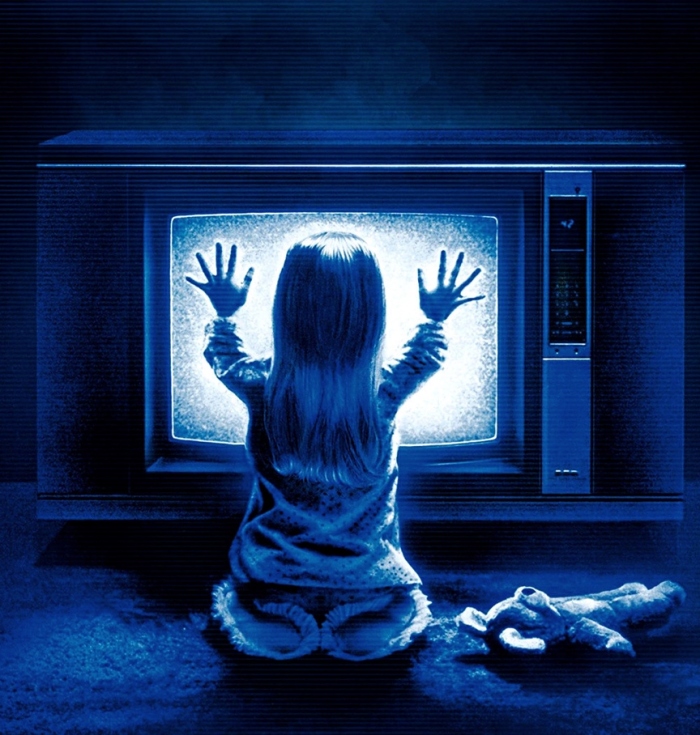
and just so I’m not completely fucking lazy, a bit of this…
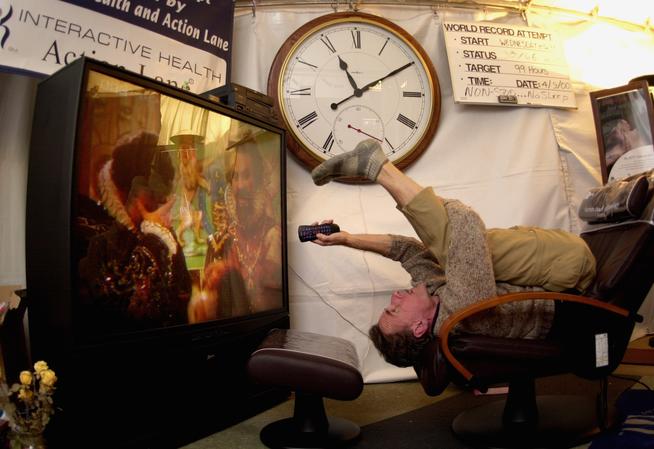
and then of course it’s back to reality with this…

Get to it…

We can’ts forgets what we’re doing, cans we? Noooooooo…
I’ve even mastered the laziest blog post ever. MEMES, baby! They come in handy sometimes.
“Screenwriting is no more complicated than old French torture chambers, I think. It’s about as simple as that.” – James L. Brooks
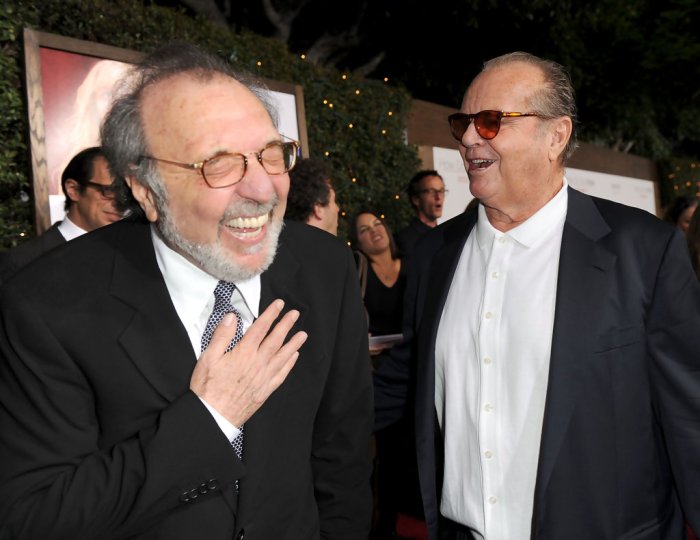
…sigh. Writing’s hhhard. Ain’t no lie.
I’ve been reading about story beats lately and see Chinatown referenced in pretty much every industry blog/site so I felt the need to read up on Robert Towne. Apparently the man knows what he’s doing…
“A movie, I think, is really only four or five moments between two people; the rest of it exists to give those moments their impact and resonance. The script exists for that. Everything does.” – Robert Towne
Here’s an interview re: 35th Anniversary of Chinatown and a picture of Jack Nicholson from the movie. I LOVE this shot of him.
Baseball isn’t one of those sports I intentionally seek out as a favorite; when it’s the off-season I don’t consciously miss it. But every spring I’m reminded of my rather understated love affair with the sport. Is it because it’s “all American”? Is it the slow-paced intensity of plays and the potential for “classic moments in sports”? I have no idea. But every season my excitement for the game comes back with every crack of the bat.
Now that my 7 yr old son is neck-deep in Little League, and I see his obsession and knack for the game, I find myself even more in love with the sport. Watching him play or watch a game, or hearing him spout off names and stats (is that, like, imprinted on the Y chromosome or what?) is fascinating. He loves this sport all on his own, I assure you I had nothing to do with it other than ask if he wanted to try it out last year. He plays soccer and he takes swim lessons and he rather enjoys those activities, but he doesn’t love either one with the same intensity as baseball. You should see his shelves, they’re dotted with pictures of players, random baseball paraphernalia, and a collection of baseball books both fiction and non. He’s seen The Sandlot a thousand times (who hasn’t) and can’t stop talking about going to Texas Rangers games once school lets out. What is it about this sport that America loves so much?
Anyway, back to the screenwriting and film-lovin’ world. While looking for reviews and info on whether or not it would be suitable for a 7 yr old, I came across this interview with the screenwriter of 42, Brian Helgeland, and thought it was interesting and relevant to my own screenwriting journey.
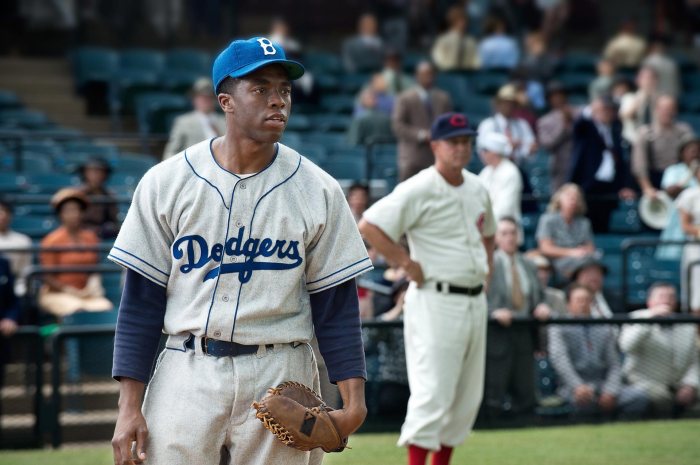
This part, especially, I can relate to:
“Well, just the script itself probably 50 days or something like that, but I outline much more than I write so the outlining is probably three months. Two or three months of outlining and researching and whatever is involved with not actually writing the script. I spend a lot of time outlining.”
You can find the rest of the interview here.
Also, something extra just for fun 🙂
Enjoy!
In doing some research about Sci Fi stuff, I came across author Robert Anson Heinlein and this quote, which I thought was completely hilarious:
“Writing is not necessarily something to be ashamed of, but do it in private and wash your hands afterwards.”
He was a Navy man, which is an automatic awesome in my book, and served on one of the first aircraft carriers, doubly awesome.
Holy fark, batman. What the hell is my problem with creating effective loglines? Every time I think I have a good one- er, a semi-decent one- nailed down, I go running to my friend like a kid with a macaroni art masterpiece waiting for mommy to stick it on the fridge. Only, she’s the friend who’s, thankfully, brutally honest, and tells me my choice in Bow Tie macaroni over Rigafarkingtoni is shite and that I haven’t quite captured the concept of macaroni media. <insert giant-dramatic-verging-on-temper-tantrum sigh here>
She’s got about 4 years on me in the writing world, and she’s not your average idiot, so I trust in her wisdom, but this has me questioning my own story. I thought I had a true grasp on it. It is mine after all!
Here’s what she told me as far as what to shove into that bratty little sentence: Must achieve THIS, in order to THIS, or else THIS. She also said to start with several sentences, say 7, and pare it down from there using action and description words. As in, cut out the bullcrap and dig out the ol’ thesaurus (or, you know, just hit shift+F7). The hook should be evident while mentioning the stakes at hand and the possibilities of ultimate despair and destruction… or something to that effect.
What do you guys think? I had to go on another google hunt in order to find something I could relate to and reference repeatedly. I want to be completely confident in my logline, as well as my familiarity and focus with my own story.
Here are some blips from places I looked up:
1) According to Scriptologist.com:
“A logline is a one-sentence summary of your script. It’s the short blurb in TV guides that tells you what a movie is about and helps you decide if you’re interested in seeing it. It’s the grabber that excites your interest. <cough> Before you even begin to write, you must write down this one key sentence – the logline. Keep it in front of you while you write your script. It will keep you focused on the story when you stray. ”
(Is that my problem? That I didn’t write the logline first? I thought it was something you came up with after you wrote your story. I thought writing was seeing what happens next, organically, and then circling back and editing and re-writing. Am I doing this all wrong? Keep reading…)
“Your logline will usually start out as more than one sentence. It may even be far too long and complicated, and that’s okay. Leave it alone for a day or two and go back over with a pencil and cross out all the words that don’t contribute to the main action or heart of the story. Soon, you will have pared down your logline to one sentence that captures the essence of your story.
Here are 3 things to ask yourself as you write your logline: 1) Who is the main character and what does s/he want? 2) Who or what is standing in the way of the main character? 3) What makes this story unique?”
(Still frustrates me to have to write it all in one sentence, but I get the idea.)
2) And now a little nugget from CrackingYarns.com.au: Right off the bat I see this byline “Write your logline at the beginning, not the end”
(WHAT? I am so lost on this journey.)
Typically, screenwriters sweat for months or years over a screenplay, going through endless drafts, major revisions and minor refinements. Only when the script is “finished”, and even then only at the request of the producer, will they write the logline. This is arse about. Here’s why.
I was recently asked to produce script notes for a project that has been in development for several years. Yet after reading just 10-15 pages of the screenplay I knew the project was in trouble because the fundamental concept wasn’t sound. Thousands of dollars could have been spared and years could have been saved – if only the writer had first written a logline.
Film is a demanding medium. You have just an hour and a half – 2 hours if you’re lucky – to tell your story. That’s nothing. The average 300-page novel might take 6 hours to film – which is one reason why book adaptations are so hit-and-miss in the cinema. So good movies tend to have simple story ideas. The plots might be complex, but the concepts are almost always simple. That’s why the logline is such a great test of film stories. One sentence. 27 words. If your story’s too complex to be told in 27 words, then it’s almost certainly too complicated for a 90 min movie.
Writing films is tough but marketing them is even more difficult. How do you arrest people’s attention in a one-sheet poster? How do you hook them with a tagline? How do you open a window in their diary with a 15 second trailer? Again, it’s going to need to be a simple, easily communicable idea. But it’s also going to need to be immediately compelling. If you can’t hook me in 27 words you’ll have no chance with the cinema-going public.
Learning to write loglines is an art in itself. Here are some tips for what you should include in those precious 27 words:
*Who is the hero? – You should identify the protagonist (though not necessarily by name), the person whose story this is, the character with whom we are meant to identify. e.g. an ageing baseball player, an alcoholic lawyer, a struggling single mother.
*What is the Quest? – What does the hero want? What is the overarching external goal that is going to drive the events of the second act at least and possibly even the third act as well. e.g. has to kill a great white shark, rescue the princess from a dragon, find the groom.
*What is the hero’s flaw? – Stories are plots that force the hero to grow. What is your hero’s failing? Does he lack courage or compassion? What sort of opportunity is there here for emotional growth? e.g. selfish, cowardly, greedy, materialistic, immoral, womanising, ruthless, workaholic, obsessive.
*Where is the conflict? – Drama is all about conflict so we need to understand why this quest is going to be difficult for the hero.
*What’s at stake? – For audiences to care, the hero has to have a very strong motivation. If they don’t achieve this goal, the consequences are massive – in their eyes any way. You will generally try to convey in your logline what’s at stake .
*Who is the antagonist? – You won’t always include the antagonist – unless it’s a romantic comedy – but it can be a good way to establish the conflict and the impossibility of the hero’s quest.
*What is the tone? – If it’s a comedy, it’s a good idea to try to convey that through either the title or the logline.
*What’s the USP – In advertising, they used to talk about Unique Selling Point (USP). The thing that set the product apart from its competitors. What is it about your film that is most likely to appeal to the audience? Your logline should attempt to convey this quality or element to us.
How do you do all that in 27 words? Yeah, it’s not easy but here are some clues.
If you’ve read any Joseph Campbell or Chris Vogler, or you’ve been to one of my courses on classic film story structure, you’ll know that we meet the hero in their Ordinary World, that they get a Call to Adventure and that this quest presents a challenge to their character. Consequently, it’s often effective for your logline to have a structure something like this:
When < flawed hero at start of story> is forced to <call to adventure>, he has to <opportunity for emotional growth> or risk <what’s at stake>.
There’s one thing you shouldn’t include in the logline. The ending. It must tease, tempt and demand that the person reads your script. Give away the ending in the logline and you’ve removed that need.
You also shouldn’t include a goal that isn’t concrete. e.g. “must find true love”. What is that? How will we know when they’ve got it? The goal has to drive the drama so it needs to be specific.
(Oy. Back to the drawing board. Sigh.)
While I go nail down my story, here are some other links should any of you be interest, curious, or care to add your own… or even bash a little.
and finally this, The Script Lab’s video:
Here’s a link to their library of loglines of 200 produced films for comparison.
Toodle-loo!